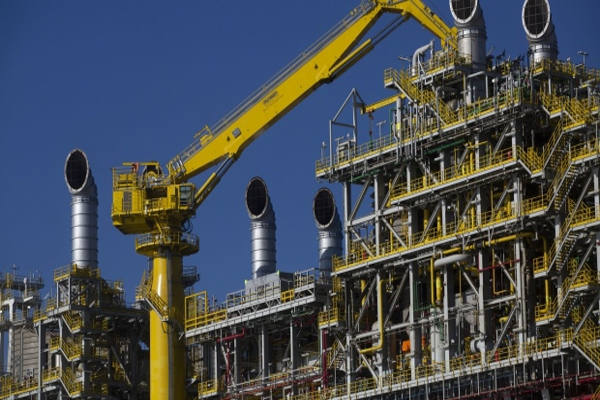CEO Luna has been criticized publicly by President Bolsonaro

Martha Viotti Beck, Peter Millard, and Mariana Durao, Bloomberg News
BRASILIA/RIO
EnergiesNet.com 03 22 2022
Oil above $100 has governments everywhere turning to fuel subsidies, and in Brazil it has even transformed state-controlled producer Petroleo Brasileiro SA into a political punching bag ahead of October elections.
Front runner Luiz Inacio Lula da Silva, a former president, has been regularly attacking President Jair Bolsonaro over high pump prices that are angering voters. Bolsonaro has responded by disparaging the leadership at Petrobras and even suggesting Chief Executive Officer Joaquim Silva e Luna could be changed after just a year in the role. Two out of Petrobras’s past three chief executives have left amid fuel price disputes, including Luna’s predecessor, who spent just over two years in his post.
Petrobras risks losing more than just its latest boss. Politicians of all stripes have joined the Petrobras bashing, suggesting there could be a departure from six years of pro-market policies no matter who wins in October. Petrobras’s political battle underscores how difficult it is for developing countries, where transportation costs take up a larger chunk of family budgets, to pass on costs to consumers when prices spike.
“Finding ways to solve the problem of fuel inflation is among the main discussions we are having at the moment,” said William Nozaki, a left-leaning economist who participates in strategy discussions at Lula’s Workers Party.
Fossil-fuel subsidies surged 144% to $440 billion globally last year as economies emerged from the pandemic, according to the International Energy Agency. This year, countries from Brazil to Japan have slashed fuel taxes or subsidized prices to contain inflation. In Latin America, Colombia and Mexico are looking to use a combination of the two to limit this year’s spike in fuel prices, while Ecuador and Argentina set domestic prices at a discount before Russia’s invasion of Ukraine.
Former president Lula points to the current price volatility as a reason to expand domestic refining and make the country more independent of international prices. This possible shift is a concern for investors because deep-water projects, where Petrobras has been focusing its investments, deliver greater returns than refining.
Even if Bolsonaro comes from behind to win, he has mentioned changing Petrobras’s by-laws to make it easier to intervene in pricing. The rising “electoral populism” could jeopardize the company’s divestment plan that includes refinery sales, said David Zylbersztajn, a professor at the Pontifical Catholic University of Rio de Janeiro.
“The consequence of this rhetoric will be a lack of investments and fuel shortages,” said Zylbersztajn, who is also a former head of Brazil’s national oil regulator.
Bolsonaro’s recent comments capture the frustration of having a state-controlled yet publicly-traded oil producer when prices are causing pain at the pump. He slammed Petrobras for lifting prices on March 10 and even said he had asked the company to delay the increase, while at the same time lamenting that he can’t intervene in the oil producer’s decisions. He has gone as far as saying the company should be privatized, so he no longer gets blamed for fuel costs.
Speculation over Luna’s ouster has been on the rise amid Bolsonaro’s criticism as he seeks a scapegoat for high prices, but some members of his cabinet believe that his departure won’t do anything to solve the problem, said two people familiar with the matter. Petrobras’s by-laws protect it from intervention and the current board has been against artificially low prices, said the people, who asked for anonymity because the discussions aren’t public.
Petrobras held prices stable for 57 days, despite oil’s surge past $100 a barrel, before announcing an adjustment of as much as 25% earlier this month. To soften the impact, the government rushed to have Congress approve federal tax cuts on diesel and cooking gas that are expected to cost 19 billion reais ($3.84 billion). Economy Minister Paulo Guedes is now facing pressure to do the same for gasoline, said other people who requested anonymity to speak freely.
If oil prices surge further amid Russia’s war in Ukraine, the economic team would recommend declaring a national calamity to facilitate social assistance payments, said two people with knowledge of the matter who asked not to be identified because the details are private. With oil back above $110 a barrel, Petrobras’s Luna is selling fuel below international rates again even after this month’s price hike and is under political pressure to continue doing so.
“Bolsonaro cannot directly say that gas prices must be reduced, but he may appoint people who are in line with that,” said Marcelo Godke, a partner at Godke Advogados in Sao Paulo who is a specialist in Brazilian corporate law.
bloomberg.com 03 21 2022







